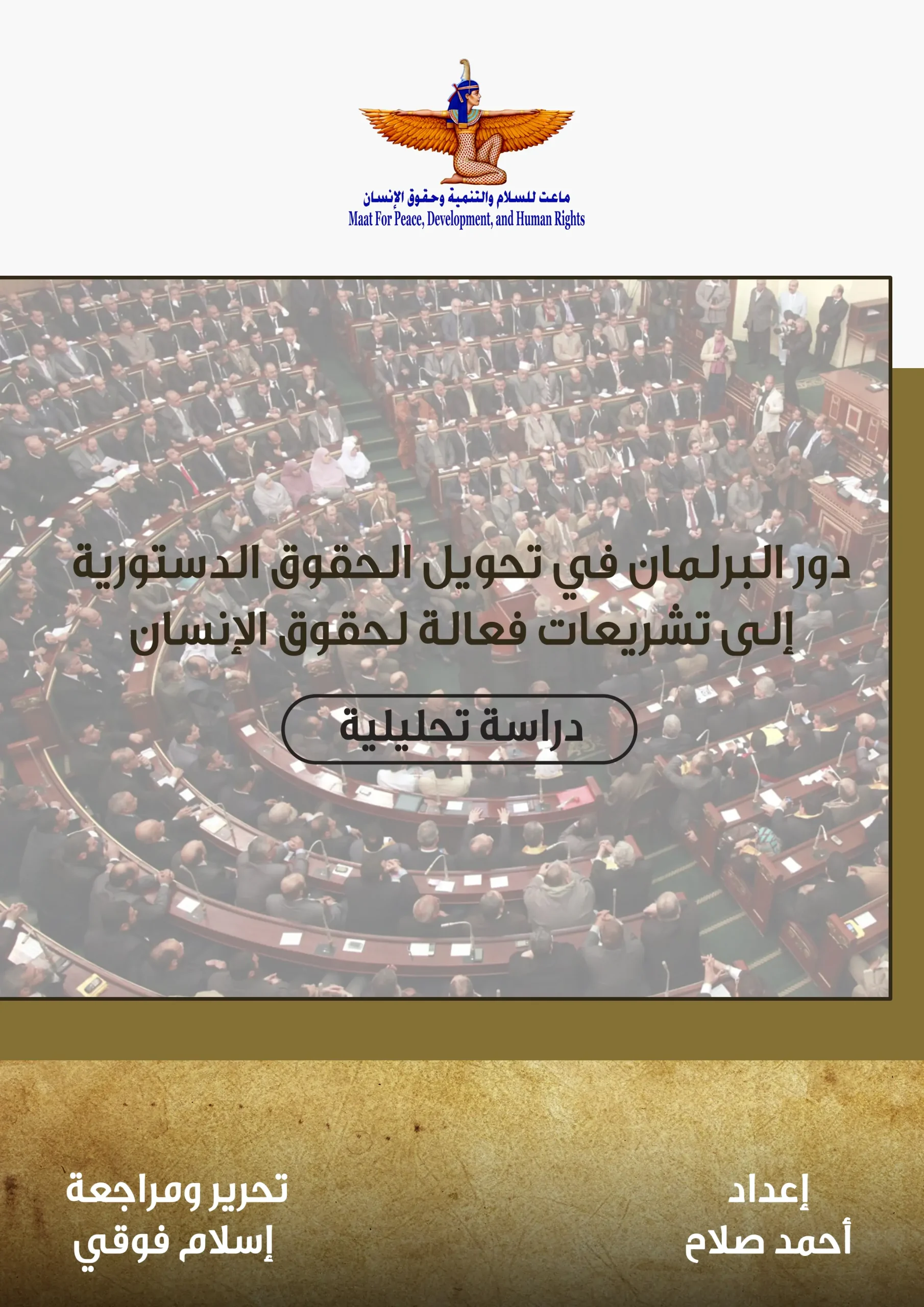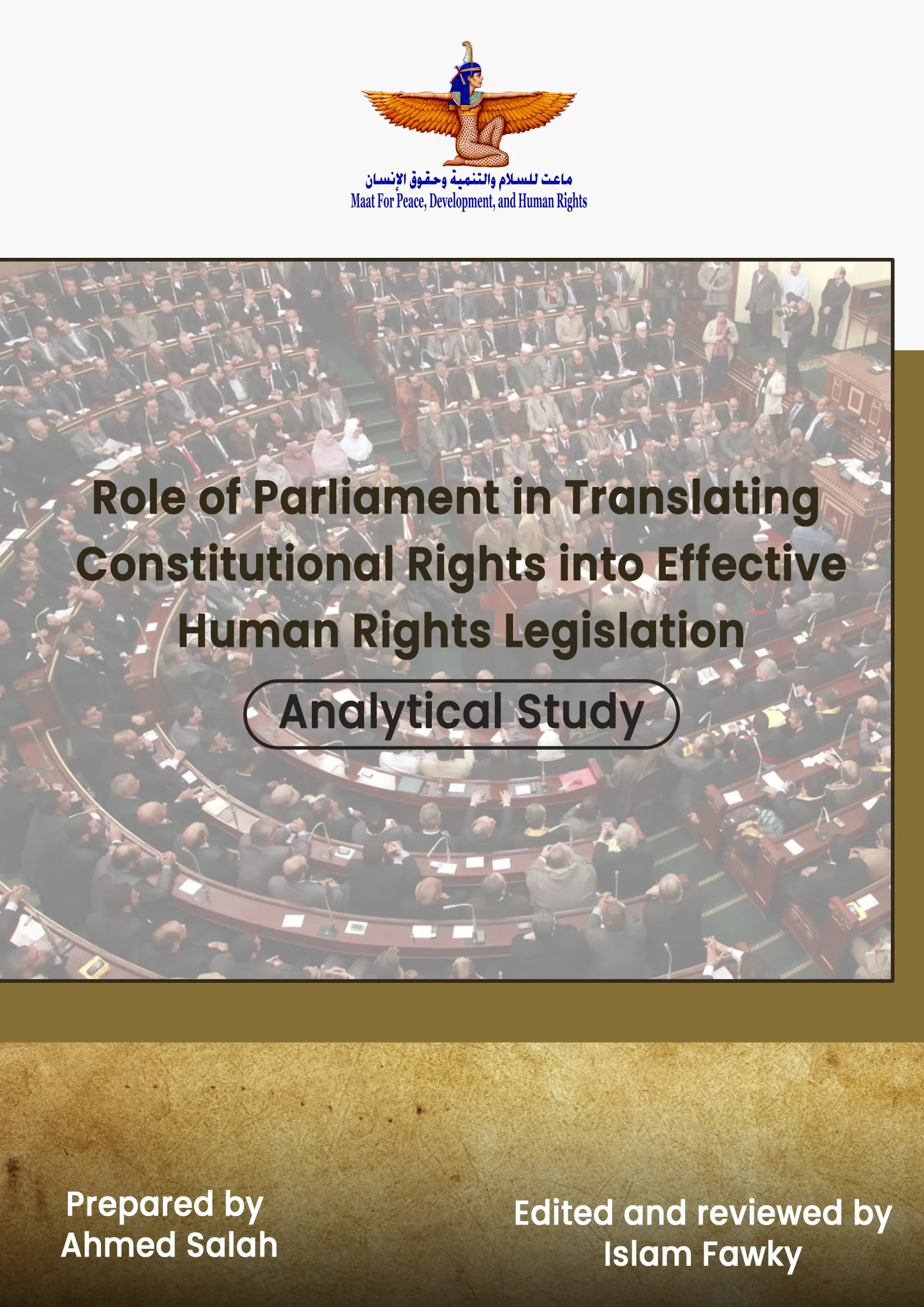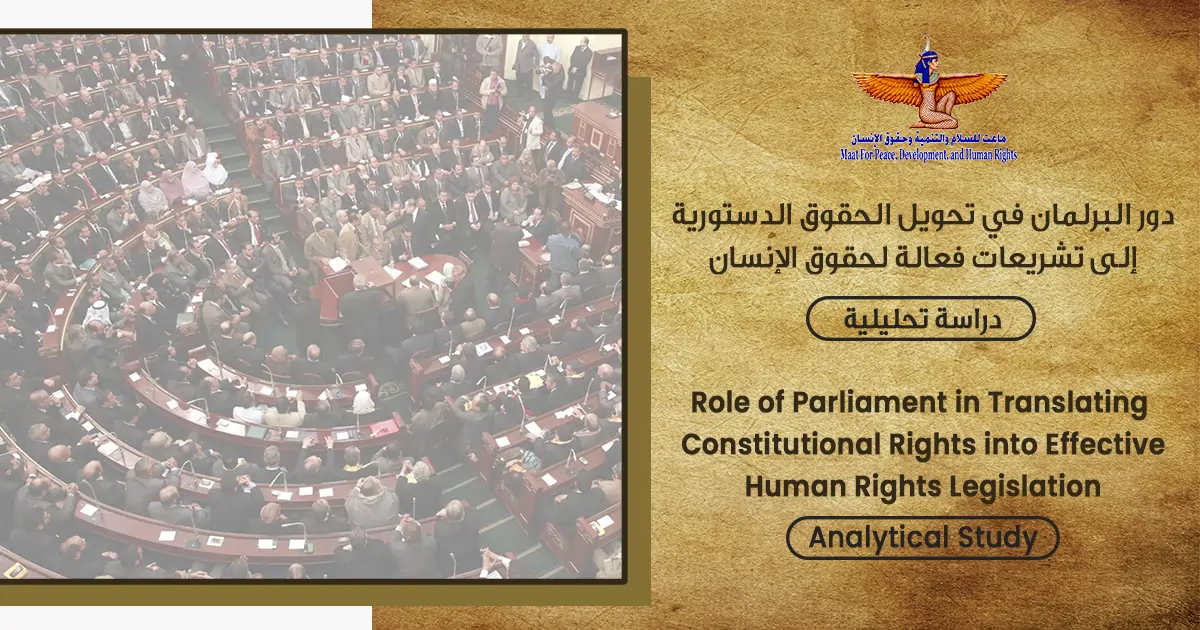In a Recent Study, Maat Discusses Role of Parliament in Translating Constitutional Rights into Effective Human Rights Legislation
Okeil: House of Representatives must prioritize implementation of constitutionally mandated laws during ongoing legislative term
Islam Fawky: Political parties holding majority of seats in House shall expedite fulfillment of their constitutional obligations
Maat for Peace, Development, and Human Rights has released a new study titled "Role of Parliament in Translating Constitutional Rights into Effective Human Rights Legislation." The study focuses on assessing Egyptian Constitution articles, amended in 2019, which mandated the enactment of laws to implement and actualize these rights. These laws were either required to be issued within 5 or 10 years or without any specific timeframe. The study examines the constitutional articles that necessitate the enactment of laws and evaluates their significance at political, economic, and social levels, emphasizing their importance in promoting human rights.
Furthermore, study explores the interconnection between several constitutional articles, for which corresponding laws have not been enacted, and international human rights conventions and Egypt's international obligations. It underscores the importance of adopting these laws to achieve diverse outcomes aligned with National Human Rights Strategy launched in 2021. The study identifies eight constitutional articles that collectively aim to promote human rights in Egypt, emphasizing the responsibility of the House of Representatives as the legislative body entrusted with enacting laws. The government has previously acknowledged that some of these laws are the responsibility of the House of Representatives, and that the Legislative Council bears the constitutional obligation.
Ayman Okeil, an international human rights expert and Chairman of Maat, highlights that the Egyptian constitution reflects Egyptian people's commitment to developing mechanisms for advancing human rights and establishing safeguards to protect the rights of citizens while regulating the relationship between state institutions. He praises the current Egyptian constitution as the most progressive among previous versions, with its principles, rights, and mechanisms ensuring citizens' rights and freedoms, as well as Egypt's adherence to international human rights conventions. Okeil emphasizes the need for laws to translate Constitution into reality, transforming it from a document of principles into laws that govern societal relationships, rights, and responsibilities. This task is entrusted to legislative authority, specifically House of Representatives, which is responsible for legislating, approving laws, and fulfilling constitutional obligations. Neglecting constitutional deadlines for approving these laws would be a dereliction of duty on the part of the House of Representatives. Addressing this issue promptly by approving laws stipulated in Constitution is not only a constitutional duty but also essential for promoting human rights, supporting state's development process, and fostering societal progress.
Okeil, in his remarks, urges the House of Representatives to make the completion of constitutionally mandated laws a top priority during current legislative term. This commitment would serve as a testament to Council's dedication to upholding Constitution and implementing its provisions. Okeil also emphasizes the need to direct parliamentary and party attention toward the approval of laws that hold significance in political and legal spheres. These laws are specifically outlined in Constitution and aligned with targeted outcomes of National Human Rights Strategy. Additionally, Okeil emphasizes the importance of issuing a new law of criminal procedures that not only aligns with Constitution but also aligns with the objectives of the strategy, as underscored by National Dialogue.
For his part, Islam Fawqi, Director of the Democracy Unit at the Maat Foundation, said that the delay in issuing the local administration law not only represents a violation of Article 242 of the Constitution, which stipulates the implementation of the new local administration system within 5 years, but also that the delay of this law means the disruption of the articles of the Constitution related to local administration. Which was mentioned in the third section on local administration, within the second section on executive authority, as the articles of the constitution regarding local administration are related to the new system for which no law has been issued yet. Fawqi called on the political parties that control the majority of seats in the House of Representatives to accelerate the implementation of constitutional obligations by submitting targeted draft laws.

 |
 |











